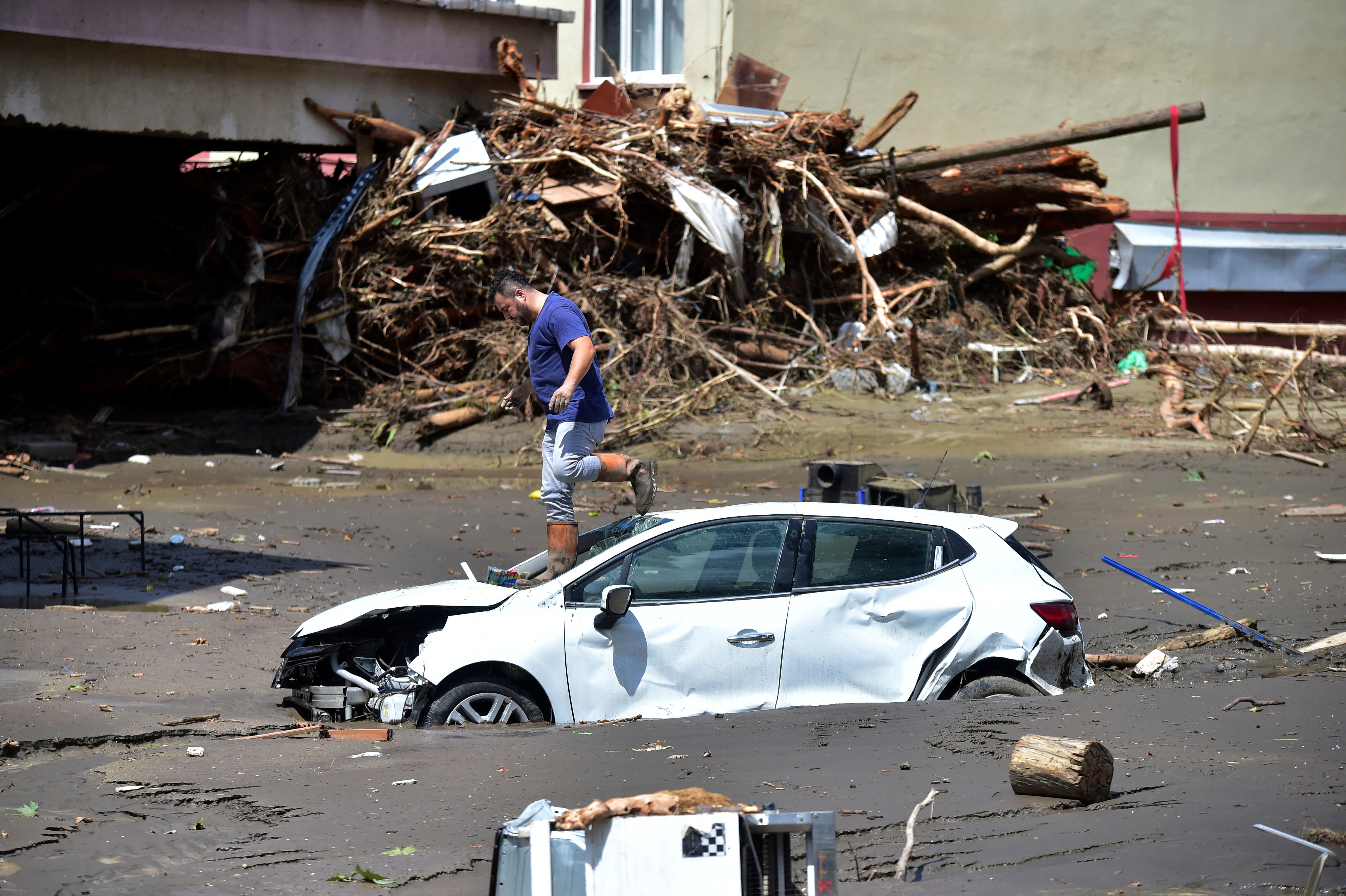At least 40 killed in severe northern Turkey floods
The death toll in Turkey’s severe floods and mudslides has climbed to at least 40, Turkey’s emergency and disaster agency said Saturday

Your support helps us to tell the story
From reproductive rights to climate change to Big Tech, The Independent is on the ground when the story is developing. Whether it's investigating the financials of Elon Musk's pro-Trump PAC or producing our latest documentary, 'The A Word', which shines a light on the American women fighting for reproductive rights, we know how important it is to parse out the facts from the messaging.
At such a critical moment in US history, we need reporters on the ground. Your donation allows us to keep sending journalists to speak to both sides of the story.
The Independent is trusted by Americans across the entire political spectrum. And unlike many other quality news outlets, we choose not to lock Americans out of our reporting and analysis with paywalls. We believe quality journalism should be available to everyone, paid for by those who can afford it.
Your support makes all the difference.The death toll from severe floods and mudslides in coastal Turkey has climbed to at least 40, the country's emergency and disaster agency said Saturday.
Torrential rains that pounded the Black Sea provinces of Bartin, Kastamonu and Sinop on Wednesday caused flooding that demolished homes, severed at least five bridges, swept away cars and rendered numerous roads unpassable. Turkish disaster agency AFAD said 34 people were killed in Kastamonu and six in Sinop.
Nine people remained hospitalized in Sinop and one person was missing in Bartin province, according to the agency. But some residents said on social media that there are hundreds more missing, a statement also made by an opposition lawmaker.
About 2,250 people were evacuated across the region, some lifted from rooftops by helicopters, and many were being temporarily housed in student dormitories, authorities said.
Climate scientists unequivocally say that climate change is leading to extreme weather events as the world warms because of the burning of coal, oil and natural gas. Such calamities are expected to happen more frequently as the planet warms.
Experts in Turkey, however, say interference with rivers and improper construction also were contributors to the massive damage in Turkey’s floods.
Geologists have said that construction narrowed the river bed and the surrounding alluvial flood plain of the Ezine stream in Kastamonu’s Bozkurt district, where the damage was most severe, from 400 meters (1,312 feet) to 15 meters (49 feet). Residential buildings were built along the waterfront.
During severe rains, the contracted stream has limited area in which to move and can overflow. Videos posted by residents showed water rushing downstream in Bozkurt as the surrounding buildings and roads flooded.
One geologist, Ramazan Demirtas, explained the river bed narrowing on Twitter and said that humans were to blame for this week's disaster.
The floods struck on the heels of wildfires in southern Turkey that devastated forestlands in the seaside provinces of Mugla and Antalya which are popular with tourists. At least eight people died and thousands of residents were forced to flee.
___
Follow AP's coverage of climate change issues at https://apnews.com/hub/climate-change